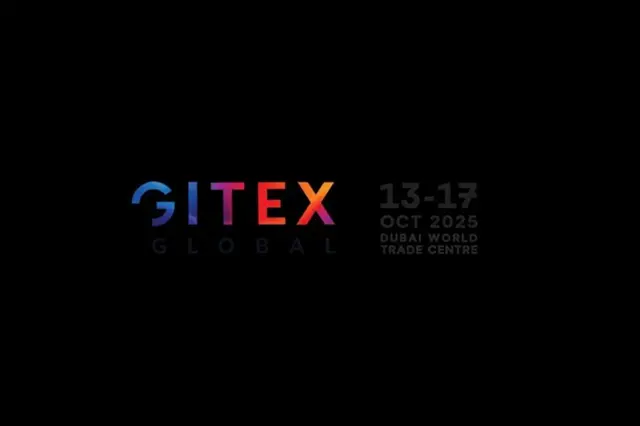The UAE Public Prosecution is pioneering a digital criminal justice system UAE, showcased at GITEX Global 2025. This initiative highlights the country’s commitment to combining advanced technology with justice, offering faster, fairer, and more transparent legal processes. Through innovative platforms and AI-driven tools, the UAE is setting a new global standard for digital justice.
Strategic Projects Spotlighted at GITEX
Integrated Case Management and AI-Assisted Analytics
One of the highlights was the integrated case management platform, designed to enable prosecutors, investigators and judiciary actors to share data in real time. Built on a secure cloud infrastructure, it applies AI-driven analytics to prioritize investigations, flag risks, and streamline workflows. This project promises to reduce delays, eliminate redundancies, and free legal professionals to focus on complex tasks.
Virtual Courtrooms and Remote Justice Services
To bring access to justice closer to all residents, the Prosecution showcased virtual courtroom modules that allow remote hearings, document submissions and real-time translation services. The system is designed to be interoperable with courts and law enforcement agencies, enabling seamless exchange of digital evidence, witness testimony via video link, and secure remote participation.

Blockchain-Enabled Evidence Integrity System
Maintaining the chain of custody and ensuring the integrity of digital evidence is a core concern. The UAE Public Prosecution introduced a blockchain-based evidence integrity platform that records every interaction with case files, timestamps modifications, and ensures tamper-proof records. This strengthens trust in digital evidence across courts and enhances public confidence in fair processes.
Predictive Risk & Recidivism Modules
Another forward-looking project is the predictive risk module, using machine learning to assess likelihoods of reoffending or case escalations. By analyzing historical data, offender profiles and socio-demographic factors, the system aids prosecutors in designing tailored interventions, diversion programs, or enhanced surveillance where needed.

Smart Victim and Witness Support Portal
In parallel, the Prosecution revealed a digital support portal for victims and witnesses—allowing secure interaction, status tracking, psychological assistance scheduling, automated updates, and multilingual access. The aim is to humanize the justice process, reduce anxiety, and ensure dignity and transparency for all participants.
The Vision: A Fully Digital Criminal Justice System
Seamless Interoperability Across Agencies
A central pillar of the vision is interoperability. The Prosecution’s roadmap emphasizes linking justice, security, corrections and social services systems. This interconnectivity ensures that data flows seamlessly, avoiding silos, duplication and delays—ultimately enabling case actors to act swiftly and cohesively.
Rapid, Fair, Transparent Proceedings
By digitizing workflows, decision-support tools, and evidence systems, the goal is to cut case backlogs, accelerate adjudication and reduce human errors. The Prosecution envisions a system where parties can follow case progress online, access documents, and receive automated notifications—enhancing fairness through transparency.
Human-Centred Justice and Access for All
Technology is framed as a means, not an end. The Prosecution emphasizes that every tool is designed to serve people: providing easier access for vulnerable groups, ensuring due process, multilingual support, and safeguarding rights at each stage. The digital justice system is intended to strengthen trust between citizens and institutions.
Data-Driven Policy and Continuous Improvement
With rich analytics and feedback loops, the system will enable evidence-based policy design. The Prosecution plans to use anonymized data to refine laws, resource allocation, crime prevention strategies, and to adapt over time to new challenges. Continuous monitoring and AI-informed insights will ensure the system evolves.
Impacts and Benefits
Efficiency and Cost Savings
By automating routine tasks, reducing paper workflows and minimizing delays, the digital system promises significant cost reductions and resource optimization. Legal actors can devote more time to strategic and human aspects rather than procedural burdens.
Enhanced Trust and Transparency
Every participant—accused, victim, attorney, judge—can track case status and access relevant documents securely. The immutable and auditable records increase confidence that justice is fair and tamper-resistant.
Broader Access to Justice
Remote services and multilingual interfaces ensure that people in remote areas, with mobility constraints or language barriers can engage with the justice system without undue hardship.
Better Risk Management and Prevention
Predictive modules allow early intervention, directing cases to diversion programs, rehabilitation or enhanced oversight. This data-driven approach can reduce recidivism and enable smarter resource deployment.
Challenges and Mitigation Strategies
Cybersecurity and Data Privacy
Sensitive personal and legal data demands the highest level of protection. The Prosecution addressed this by embedding end-to-end encryption, role-based access controls, regular audits and red teaming. Strong governance frameworks and adherence to privacy laws are central to the rollout.
Change Management and Capacity Building
Digital transformation is only as strong as its users’ acceptance. The Prosecution plans extensive training, intuitive user interfaces, stakeholder engagement and pilot phases to ensure that prosecutors, judges, lawyers and law enforcement adopt new systems confidently.
Legal and Institutional Reform
Some legacy laws and institutional norms may not mirror the pace of technology. Adjustments in procedural codes, admissibility rules, and cross-agency protocols are needed. The Prosecution is collaborating with legislative bodies and judicial authorities to adapt legal frameworks in parallel.
Ensuring Algorithmic Fairness and Bias Avoidance
AI tools risk embedding bias. The Prosecution pledges to audit algorithms, maintain human oversight, validate models with diverse data, and provide transparency into decision logic where possible. Appeals mechanisms ensure that human judgment can override algorithmic suggestions.

Human Stories and Stakeholder Experiences
At the expo, a defense attorney shared how remote hearings would transform her ability to represent clients in rural Emirates without travel burdens. A victim of crime praised the support portal’s promise of dignity, reassurance, and timely updates. Prosecutors described how predictive tools could free them from routine triage and allow focus on strategy and justice. These human voices underscored that behind each system upgrade is a person seeking fairness, dignity and resolution.
Roadmap and Next Steps
The UAE Public Prosecution plans phased rollouts across emirates, starting with pilot zones, measuring key performance indicators (KPIs) such as case cycle times, user satisfaction and error reduction. Feedback loops will refine tools. Partnerships with universities, tech firms and regulatory bodies are ongoing to ensure continuous innovation. Over the coming years, full scale adoption across the UAE is expected, eventually setting a model for regional and global digital justice transformation.
Future Outlook: Global Model for Smart Justice
By demonstrating capacity, vision and commitment, the UAE Public Prosecution aspires to position itself as a global reference in digital justice. Its experience could inspire other nations to leapfrog into smart, humane, technology-driven criminal justice systems. The blend of strategic infrastructure, human focus, and adaptive governance may chart the future for how justice is served in the 21st century.
Conclusion
The UAE Public Prosecution’s participation at GITEX Global 2025 was more than a showcase—it was a bold statement of intent. Through ambitious projects and a compelling vision for a digital criminal justice system, it signals a transformation that places people at the heart of innovation. As the system unfolds, it promises greater efficiency, fairness, transparency, and trust—reshaping how justice is delivered across the Emirates and beyond.
Do follow UAE Stories on Instagram
Read Next – Emirates Islamic Sets New Benchmark with AED 209 Million Facility












